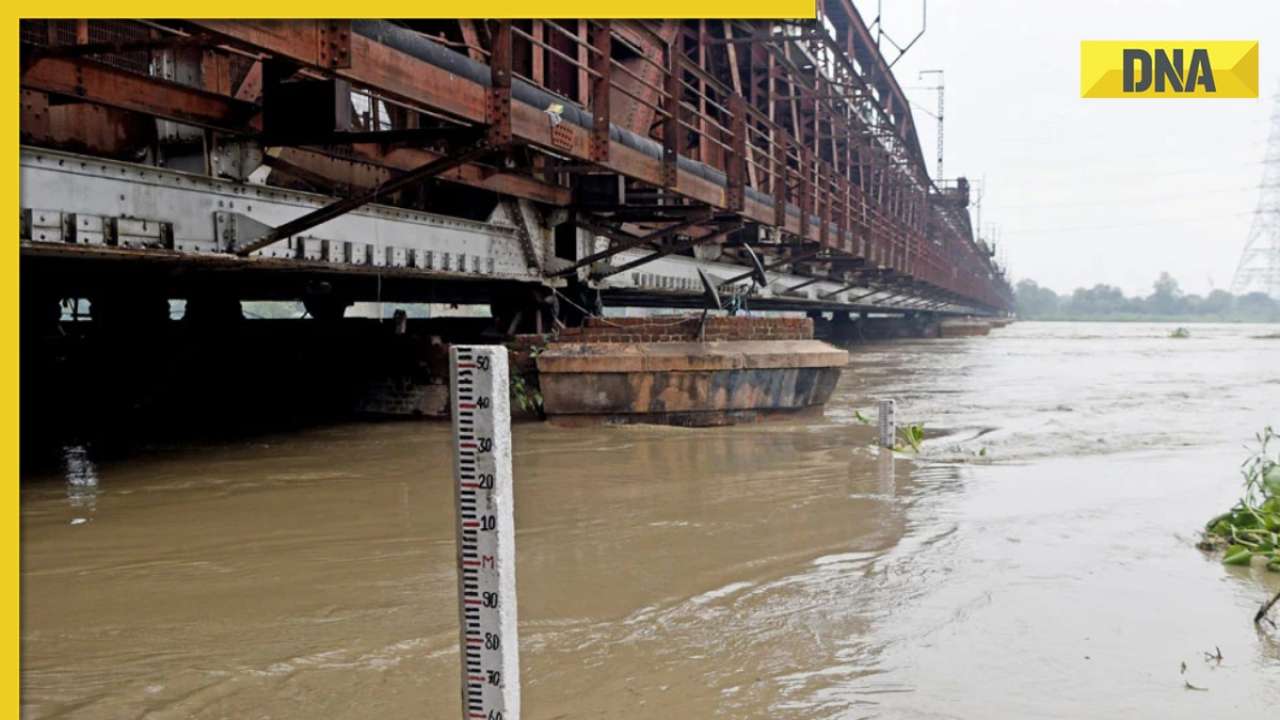Noida & Ghaziabad Heatwave: Advisory For Outdoor Workers' Safety

Table of Contents
The scorching sun beats down relentlessly, turning Noida and Ghaziabad into ovens. This severe heatwave presents a significant danger, especially for outdoor workers who are constantly exposed to the extreme temperatures. Heatstroke and heat exhaustion are serious, potentially life-threatening conditions, demanding immediate attention and preventative measures. This advisory provides crucial safety guidelines to protect those working outdoors in these cities during this dangerous period.
Understanding the Dangers of Heatwave in Noida and Ghaziabad
The intense heatwave gripping Noida and Ghaziabad significantly increases the risk of heat-related illnesses. Understanding the symptoms and taking preventative action is critical for survival.
Heatstroke Symptoms and Prevention
Heatstroke, the most severe heat-related illness, is a medical emergency. Symptoms include a high body temperature (often above 103°F or 39.4°C), confusion, seizures, rapid breathing, and a strong, rapid pulse. If you suspect heatstroke, call emergency services immediately. Do not delay seeking medical attention.
- Early warning signs of heat exhaustion: Heavy sweating, weakness, dizziness, headache, nausea, and muscle cramps.
- Immediate actions if heatstroke is suspected: Move the person to a cool place, remove excess clothing, and apply cool, wet cloths or ice packs to the neck, armpits, and groin. Fan the person to help cool them down. Call emergency services in Noida and Ghaziabad immediately (dial 108 for emergency medical services).
- Emergency contact details: 108 (Emergency Medical Services)
Heat Exhaustion: Causes, Symptoms, and First Aid Treatment
Heat exhaustion is a milder form of heat-related illness but still requires prompt attention. It's caused by your body overheating, often due to prolonged exposure to high temperatures and inadequate fluid intake.
- Recognizing symptoms: Heavy sweating, weakness, dizziness, headache, nausea, vomiting, and muscle cramps. Your skin may feel cool and clammy.
- Self-care steps: Move to a cool place, drink plenty of fluids (water or electrolyte drinks), rest, and remove excess clothing.
- When to seek medical attention: If symptoms worsen or don't improve within a few hours, seek medical attention immediately.
Safety Measures for Outdoor Workers in Noida & Ghaziabad
Protecting outdoor workers requires a multi-pronged approach focusing on hydration, protective gear, and responsible work scheduling.
Hydration and Nutrition
Staying properly hydrated is paramount. Aim to drink plenty of water throughout the day, even before you feel thirsty. Electrolyte drinks can help replenish essential salts lost through sweating.
- Recommended fluids: Water, electrolyte drinks (check for low sugar content), coconut water.
- Foods rich in electrolytes: Bananas, oranges, watermelon.
- Avoid: Sugary drinks and alcohol, as they can dehydrate you further.
Protective Clothing and Equipment
Appropriate clothing and equipment offer crucial protection against the harsh sun.
- Clothing recommendations: Light-colored, loose-fitting, and breathable fabrics like cotton or linen.
- Hats: Wide-brimmed hats to shade the face, neck, and ears.
- Sunscreen: Use a broad-spectrum sunscreen with an SPF of 30 or higher, reapplying every two hours.
- Sunglasses: Protect your eyes from harmful UV rays.
- Rest breaks: Frequent rest breaks in shaded areas are essential.
Work Scheduling and Breaks
Adjusting work schedules to avoid the peak heat hours is crucial.
- Suggested work timings: Prioritize work during cooler parts of the day (early morning or late evening).
- Recommended break durations: Take frequent short breaks (10-15 minutes) to rest in shaded areas.
- Importance of shaded areas: Ensure access to cool, shaded areas for rest and recovery.
Employer Responsibilities During a Heatwave
Employers bear significant responsibility for the safety of their outdoor workers during a heatwave.
Providing Adequate Resources
Employers must provide sufficient resources to protect their employees.
- Legal obligations: Familiarize yourselves with relevant labor laws regarding worker safety in extreme heat.
- Best practices: Provide ample water, shaded rest areas, and regular breaks. Offer heat safety training to employees.
Monitoring Employee Health
Regularly monitor employee health to identify early signs of heat-related illnesses.
- Monitoring methods: Observe employees for symptoms of heat exhaustion or heatstroke.
- Early intervention strategies: Provide immediate assistance to anyone showing symptoms.
- Regular health checks: Conduct regular health checks, especially during peak heatwave periods.
Conclusion
The intense heatwave affecting Noida and Ghaziabad poses significant risks to outdoor workers. Preventing heatstroke and heat exhaustion requires proactive measures, including proper hydration, protective clothing, appropriate work scheduling, and employer support. By following these safety guidelines and prioritizing worker well-being, we can mitigate the dangers and ensure the safety of our outdoor workforce. Stay safe during the Noida & Ghaziabad heatwave! Share this information with outdoor workers in Noida and Ghaziabad to spread awareness and encourage responsible behavior during this critical period. Employers, prioritize your workers' safety and implement the necessary precautions. Protect yourself from the heatwave in Noida and Ghaziabad.

Featured Posts
-
 The Airfocus And Lucid Software Merger A New Era In Productivity
May 13, 2025
The Airfocus And Lucid Software Merger A New Era In Productivity
May 13, 2025 -
 The Jost Johansson Pay Gap A Discussion Of Celebrity Compensation
May 13, 2025
The Jost Johansson Pay Gap A Discussion Of Celebrity Compensation
May 13, 2025 -
 Elsbeth Season 2 Episodes 18 And 19 Previews And Finale Sneak Peek
May 13, 2025
Elsbeth Season 2 Episodes 18 And 19 Previews And Finale Sneak Peek
May 13, 2025 -
 Worcester Witnessing Tensions Ice Enforcement And Public Response
May 13, 2025
Worcester Witnessing Tensions Ice Enforcement And Public Response
May 13, 2025 -
 The Ultimate Guide To A Great Spring Break For Kids
May 13, 2025
The Ultimate Guide To A Great Spring Break For Kids
May 13, 2025
